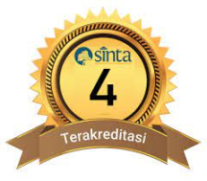EFFECT SIZE OF MODEL APPLICATION REACT ON PHYSICS STUDENT’S ACHIEVEMENT
Abstract
The 2013 Revised Curriculum requires teachers to develop learning through the integration of four elements, one of which is the 21st Century Skills (4Cs). To understand these requirements, learning with teacher-centered models and methods is no longer possible, and students must be empowered with student-centered active learning. Efforts to overcome poor student learning outcomes can be done by using a student-centered learning model and involving students actively in learning. One of them is the REACT learning model. The purpose of the study was to determine the effect of using the REACT model on physics learning outcomes for students of class X semester 2 of SMAN 1 RAO, Pasaman Regency.
This type of research is experimental research using a posttest-only control design. The research subjects were all students of Class X MIPA SMAN 1 RAO for the academic year 2021/2022. The samples were taken using the purposive sampling technique. Research data is data on the achievement of student competence in knowledge competence. The final test (post-test) with multiple choice questions was used as a research instrument. The survey data were analyzed using the normality test, homogeneity test, and the similarity test of two averages.
The results showed that the experimental class had an average final test score of 81 and the control class had an average final test score of 76.52. The results for the similarity of the two averages were obtained > for a significance level of 0.05, which means that there is an effect of applying the REACT model on the physics learning outcomes of students in Class X MIPA Semester 2 at SMAN 1 RAO, Pasaman Regency.
Keywords :2013 curriculum revision, REACT model
Full Text:
PDFReferences
Adini, S. N. (2021). Metode Bermain Peran Meningkatkan Hasil Belajar peserta didik Dalam Pembelajaran IPS. Bengkalis-Riau: DOTPlus Publisher.
Nurgiansah, TH (2019) Pemutakhiran kurikulum pendidikan kewarganegaraan untuk era Revolusi Industri 4.0. Prosiding Seminar Nasional: Pembaharuan Konsep Kewarganegaraan Indonesia. Digital Library
Muhari, M. (2019). Pembelajaran inovatif untuk abad ke-21. Jurnal Penelitian dan Kajian Pendidikan: E-Saintika, 3(2), 25-50.
Sumantri, BA (2019). Pengembangan Kurikulum Indonesia Menghadapi Tuntutan Kompetensi Abad 21 At-Ta`lim: Media Informasi Pendidikan Islam
Yunus, & Dja'far, A.B. (2021). Manajemen pendidikan Islam (konsep, prinsip dan ruang lingkup manajemen pendidikan Islam). Jawa Barat: CV . Adhanu Abimata
Mulyasa, E. (2018). Implementasi Kurikulum 2013 Revisi. Jakarta: Bumi Aksara.
Crawford, LM (2001) Teaching Contextually: Research, Rationale, and Techniques for Improving Student Motivation and Achievement in Mathematics and science. Waco, Texas, USA: CORD CCI Publishing, Inc.
Sugiyono. (2012). Metode Penelitian Kuantitatif Kualitatif Dan R&D. Bandung: Alfabeta.
Hamid, Moh Sholeh. 2011. Metode Edutainment. Jogjakarta: Diva Press
DOI: http://dx.doi.org/10.24036/13645171074








